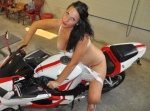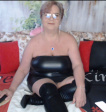As an author of erotica, you are likely quite skilled in creative writing. Crafting stories about romance and sexuality is fun and exciting, and it is easy to become swept up in fantastical scenes and elaborate plotlines. However, some romantic stories are so overly exaggerated that they become hard for readers to believe and follow. By maintaining a careful balance between reality and fantasy, you will enable your audience to become completely immersed in your story, and also leave them wanting more. Here are some basic guidelines to follow so that you can make your story accurate and believable.
1) Know your anatomy. While it is, of course, very important to have good writing skills, those talents will mean nothing if you have no idea what goes where. Ignorance regarding the human body will be glaringly obvious to your audience, especially to female readers. While male sexual anatomy and function is more straightforward, you must remember that female bodies are complex and tend to have a lot going on in one area. Make sure that you know exactly where important parts like the clitoris, vulva, and g-spot are so that you can describe and discuss them accurately. Even female writers can get this kind of information wrong if they aren’t familiar with their own bodies. Consider “boning up” (pun intended) on your anatomy and human sexuality facts before beginning your next story.
2) Figure out what men and women really want in bed. You may think you know what men and women’s favorite sexual moves and positions are, but you have to remember that people often lie in an effort to spare their partner’s feelings, or avoid possible embarrassment about their true desires. For this reason, it is important to do some research about men and women’s true preferences in bed. Try reading some recent sexual studies printed in peer-reviewed medical studies and journals. However, skip the polls printed in lifestyle magazines such as Maxim and Cosmopolitan, as they are conducted informally and thus do not always produce accurate results.
3) Draw from your own experiences. While you do want to add an element of fantasy and mystique to your writing, many erotic authors make the mistake of going too far off the deep end, describing what they think great sex is like, instead of what it is actually like. To keep your feet on the ground, try thinking back to some of your most enjoyable personal sexual experiences and go from there. What was so great about that particular experience? What would have made it better? Adding realistic details and events will help your readers relate to the story.
4) Variety, variety, variety. Too many erotic authors use the same old formula for every scene - a nipple lick here, a thrust there, and everything is over by the end of the next page. Boring! You and I both know that this is not how sex happens in the real world. Truly passionate, loving couples like to spice things up and try new moves every chance they get. Get creative and include a number of different types of foreplay, positions, and seduction tactics. Let your mind wander and have some fun!
5) It’s not all about the dude. A major issue many women have with contemporary erotica is that it often revolves completely around the male experience. Generally, vaginal penetration is staged as the main event in erotic stories, with the woman acting as the passive recipient and having a few orgasms every once in a while. However, studies show that at least 70% of women cannot reach climax from vaginal penetration alone, so that’s obviously not the way things happen in real life. If a woman reads a story about a female who can orgasm at the drop of a hat, it makes her feel inadequate, not aroused. Do the women of the world a favor, and write about the things that actually get them off, like cunnilingus and vibrators.
6) Write in the proper voice. Many erotic stories are written in the third person, meaning they describe the scene from an outsider’s point of view (“He gathered her into his strong, muscular arms, she moaned passionately in his embrace,” etc.). However, if you are narrating from a first person point of view (“I had been lusting after his hard body for weeks”), make it easy on yourself by having the main character be the same gender as you. This may seem like an obvious tip, but with the expansion of the genre into homosexual literature, men sometimes find themselves writing stories about lesbians, and vice versa. Be very careful if you decide to do this, because you are essentially stepping outside of your experiences and attempting to express the sexual desires of a person of the opposite sex. Make sure you are completely accurate in your gendered details and descriptions.
7) Read a ton of erotica. It sounds bad, but good writers can always improve their skills by reading the work of bad writers. Even if you think you already know everything about the genre, your writing style could likely stand to be improved in one way or another. You can think of a bad erotic story as a magnification of your own personal writing weaknesses, or a cautionary example, if you will. As in, “If I keep making grammatical mistakes while writing transsexual erotica, I’m going to eventually end up like this writer (shudder).” Learning from others’ mistakes can also prevent you from making them in the future.
8) Ask your friends to read your work. We admit that this may be an embarrassing request, but it really has the potential to improve the believability of your story. Presumably you have a few friends who are not regular erotica readers, and thus can provide a more objective view of your work. Sending them sections of your story will help you to determine how your story will be received by outsiders to the genre, and asking for their tips can help you appeal to a wider audience. Plus, your friends can let you know if one of your choices phrases is just plain ludicrous and should be eliminated, such as “trouser snake.”






















